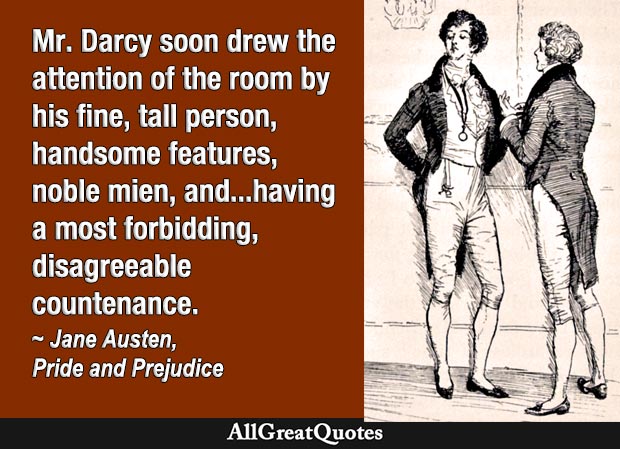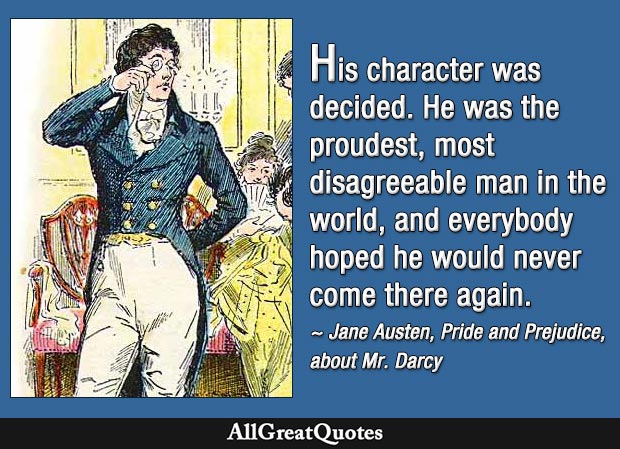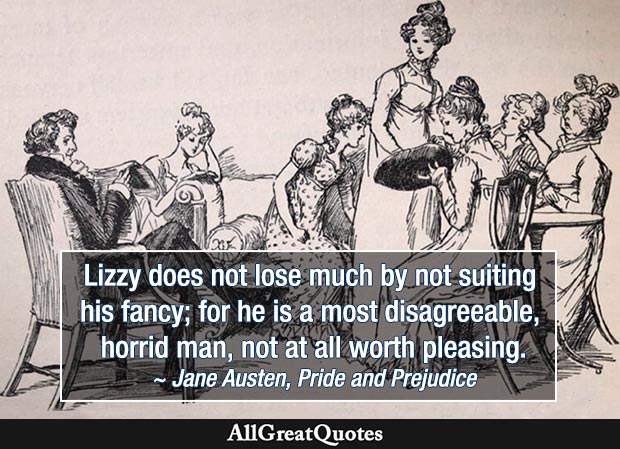Mr. Darcy soon drew the attention of the room by his fine, tall person, handsome features, noble mien, and the report which was in general circulation within five minutes after his entrance, of his having ten thousand a year. The gentlemen pronounced him to be a fine figure of a man, the ladies declared he was much handsomer than Mr. Bingley, and he was looked at with great admiration for about half the evening, till his manners gave a disgust which turned the tide of his popularity; for he was discovered to be proud; to be above his company, and above being pleased; and not all his large estate in Derbyshire could then save him from having a most forbidding, disagreeable countenance, and being unworthy to be compared with his friend.
– Jane Austen
Pride and Prejudice, Chapter 3. This describes the reaction to Fitzwilliam Darcy and his friend Charles Bingley at the Meryton ball, attended by the Bennet sisters and their mother. Aside from Darcy’s handsome looks, what makes a big impression on the ballgoers is that he is wealthy and worth ten thousand pounds a year. But very quickly they make up their minds from Darcy’s manner that he is insufferably proud and behaves as if he is superior to those around him. From the start they develop a dislike of and a prejudice against him. He is "unworthy" to be compared to his friend Charles Bingley, they decide. Darcy is believed to be partly based on Irish politician and lawyer Thomas Lefroy, who had a flirtation and spent some time with Jane Austen during a break from studying law. Austen’s lack of wealth is believed to have played a part in the pair not ending up together. After Lefroy died in 1869 one of his nephews wrote to Austen’s nephew James Edward Austen Leigh to say: "My late venerable uncle…said in so many words that he was in love with her, although he qualified his confession by saying it was a boyish love."



